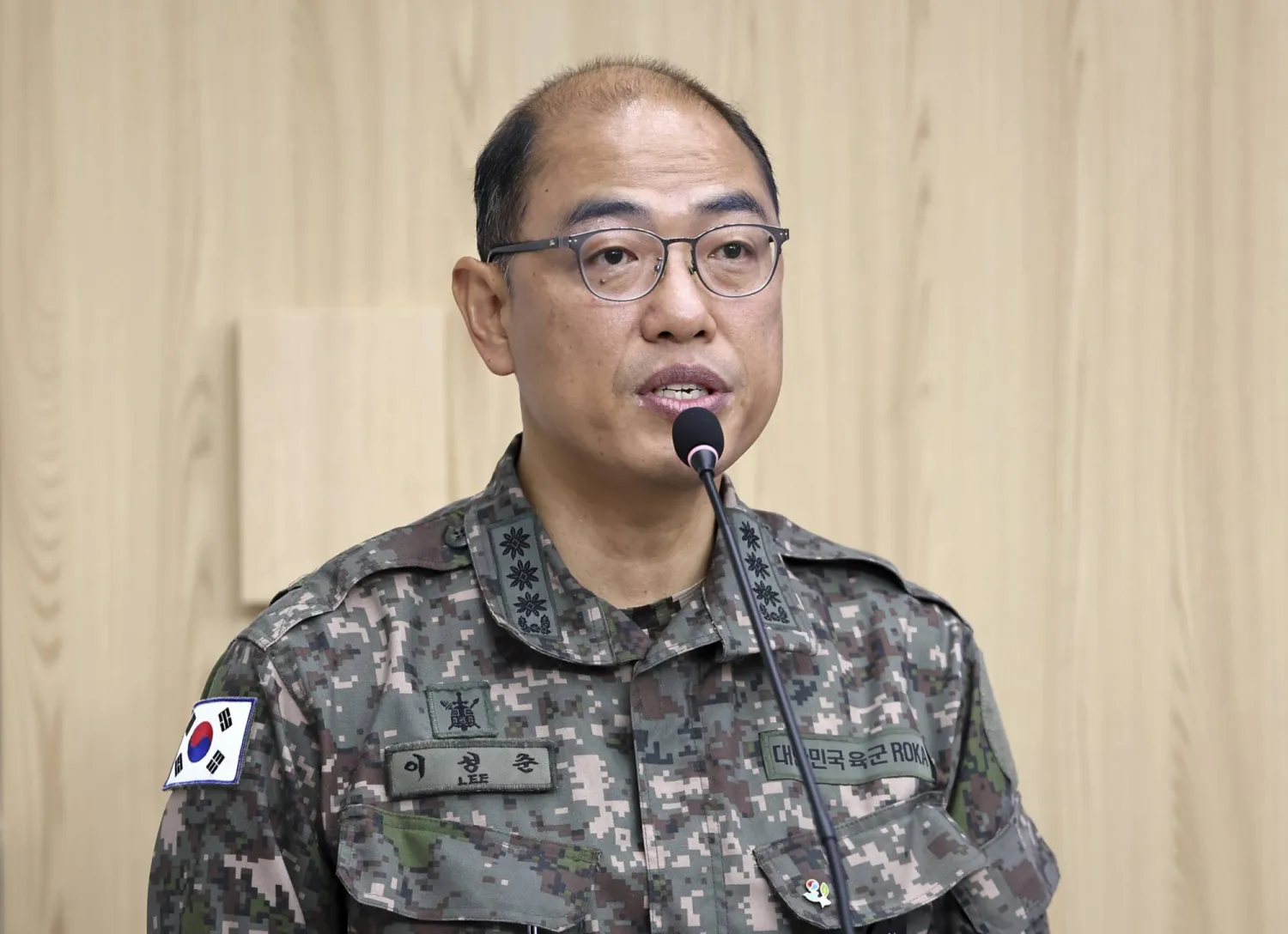South Korea resumed broadcasting anti-North Korean propaganda through loudspeakers in border areas Sunday in retaliation for the more than 1,000 trash- and manure-filled balloons the North had sent over the last couple of weeks.
Hours later, the powerful sister of North Korean leader Kim Jong Un warned that the South created a “prelude to a very dangerous situation.” She said South Korea would witness an unspecified “new response” from the North if it continued with the broadcasts and fails to stop civilian activists from flying anti-North Korean propaganda leaflets across the border.
“I sternly warn Seoul to immediately cease its dangerous activities that would further provoke a crisis of confrontation,” Kim Yo Jong said in a statement published by North Korea’s official Korean Central News Agency.
The resumed propaganda broadcasts could trigger retaliatory military steps as tensions between the rivals rise while negotiations over the North’s nuclear ambitions remain stalemated, The Associated Press reported.
South Korea’s military also said it detected North Korea launching what appeared to be more trash-carrying balloons Sunday night. The military did not immediately confirm if any landed in the South.
Lee Sung Joon, spokesperson of South Korea’s Joint Chiefs of Staff, said Kim’s comments represented a heightened verbal threat from North Korea but he did not provide a specific assessment on the actions the North might take. Lee said the South was conducting broadcasts in sites where soldiers have sufficient protection and are equipped to swiftly hit back when attacked.
“(We) don’t think that they could provoke us that easily,” Lee said during a briefing Monday.
The Joint Chiefs of Staff didn't specify where on the border the broadcast took place Sunday afternoon or what was played. Anti-Pyongyang broadcasts, K-pop songs and international news were broadcast in the past.
The Joint Chiefs of Staff said additional broadcasts were “entirely dependent on North Korea’s behavior,” and the broadcasts were not being continued as of Monday morning.
The South had withdrawn loudspeakers from border areas in 2018, during a brief period of engagement with the North under Seoul’s previous liberal government.
The North said its balloon campaign came after South Korean activists sent over balloons filled with anti-North Korean leaflets, as well as USB sticks filled with popular South Korean songs and dramas. Pyongyang is extremely sensitive to such material and fears it could demoralize front-line troops and residents and eventually weaken leader Kim Jong Un’s grip on power, analysts say.
In 2015, when South Korea restarted loudspeaker broadcasts for the first time in 11 years, North Korea fired artillery rounds across the border, prompting South Korea to return fire, according to South Korean officials. No casualties were reported.
Last week, as tensions spiked over the trash-carrying balloons, South Korea also suspended a 2018 agreement to reduce hostile acts along the border, allowing it to resume propaganda campaigns and possibly restart live-fire military exercises in border areas.
South Korean Defense Minister Shin Won-sik in a meeting with top military commanders called for thorough preparation against the possibility that the North responds to the loudspeaker broadcasts with direct military action, his ministry said in a statement.
North Korea continued to fly hundreds of balloons into South Korea over the weekend, a third such campaign since late May.
The South’s military said the balloons that did land dropped trash, including plastic and paper waste, but no hazardous substances were discovered.
In her statement, Kim Yo Jong claimed the North used about 1,400 balloons to drop 7.5 tons of trash from Saturday night to Sunday morning. She also complained that anti-North Korean propaganda leaflets flown from South Korean activists had been discovered in border areas in recent days.
She said the North had initially planned to halt its balloon launches on Sunday but decided to send more because the South restarted loudspeaker broadcasts.
The South’s military, which has mobilized chemical rapid response and explosive clearance units to retrieve the North Korean balloons and materials, alerted the public to beware of falling objects and not to touch balloons found on the ground but report them to police or military authorities.
In North Korea’s previous two rounds of balloon activities, South Korean authorities discovered about 1,000 balloons that were tied to vinyl bags containing manure, cigarette butts, scraps of cloth, waste batteries and waste paper. Some were popped and scattered on roads, residential areas and schools. No highly dangerous materials were found and no major damage has been reported.
SKorea Resumes Broadcasting Anti-North Korea Propaganda at Border

Lee Sung Joon, spokesperson of South Korea's Joint Chiefs of Staff, speaks during the briefing in Seoul, South Korea, Monday, June 10, 2024. (Yun Dong-jin/Yonhap via AP)

SKorea Resumes Broadcasting Anti-North Korea Propaganda at Border

Lee Sung Joon, spokesperson of South Korea's Joint Chiefs of Staff, speaks during the briefing in Seoul, South Korea, Monday, June 10, 2024. (Yun Dong-jin/Yonhap via AP)
لم تشترك بعد
انشئ حساباً خاصاً بك لتحصل على أخبار مخصصة لك ولتتمتع بخاصية حفظ المقالات وتتلقى نشراتنا البريدية المتنوعة







